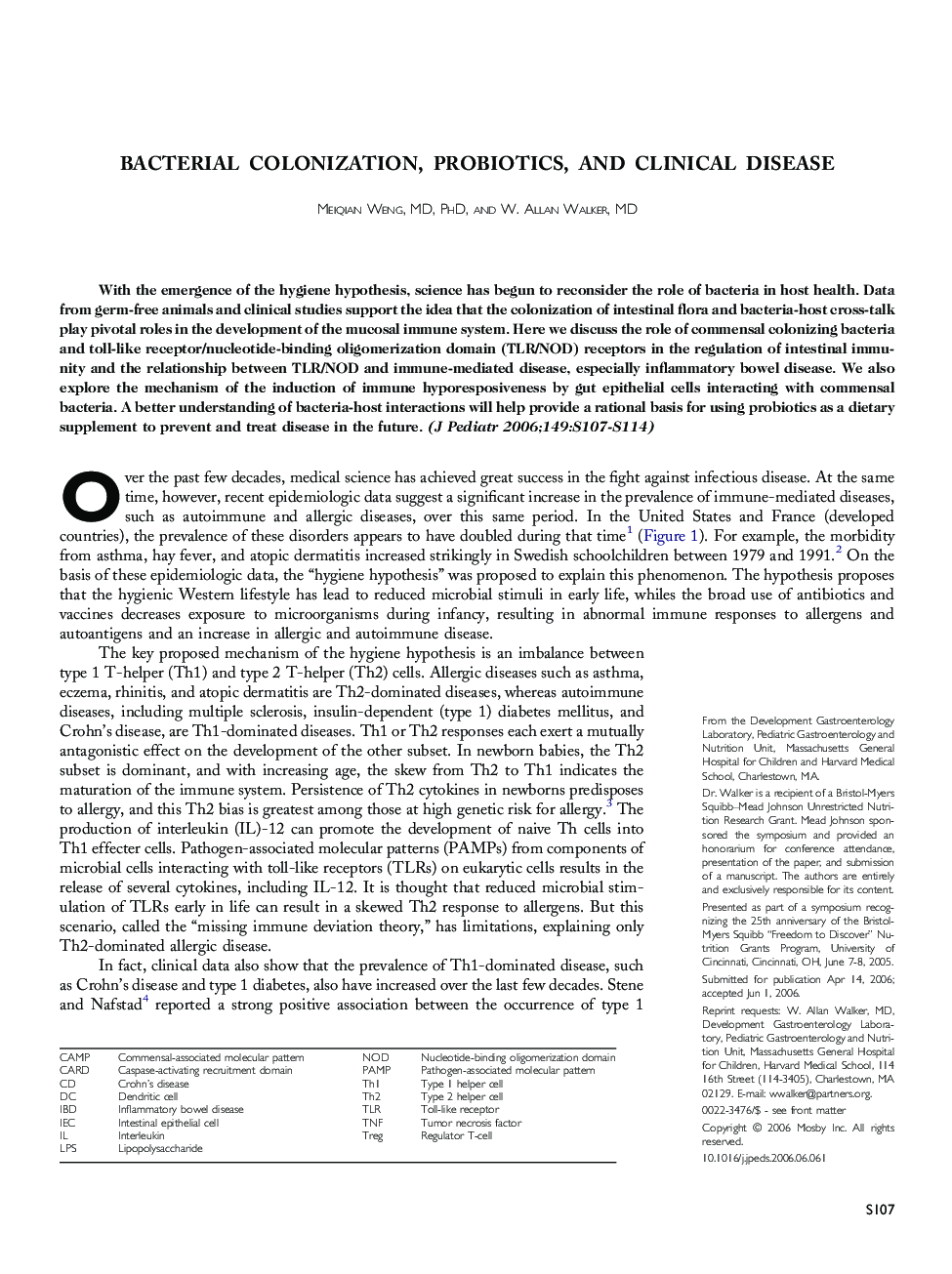| Article ID | Journal | Published Year | Pages | File Type |
|---|---|---|---|---|
| 4169197 | The Journal of Pediatrics | 2006 | 8 Pages |
With the emergence of the hygiene hypothesis, science has begun to reconsider the role of bacteria in host health. Data from germ-free animals and clinical studies support the idea that the colonization of intestinal flora and bacteria-host cross-talk play pivotal roles in the development of the mucosal immune system. Here we discuss the role of commensal colonizing bacteria and toll-like receptor/nucleotide-binding oligomerization domain (TLR/NOD) receptors in the regulation of intestinal immunity and the relationship between TLR/NOD and immune-mediated disease, especially inflammatory bowel disease. We also explore the mechanism of the induction of immune hyporesposiveness by gut epithelial cells interacting with commensal bacteria. A better understanding of bacteria-host interactions will help provide a rational basis for using probiotics as a dietary supplement to prevent and treat disease in the future.
